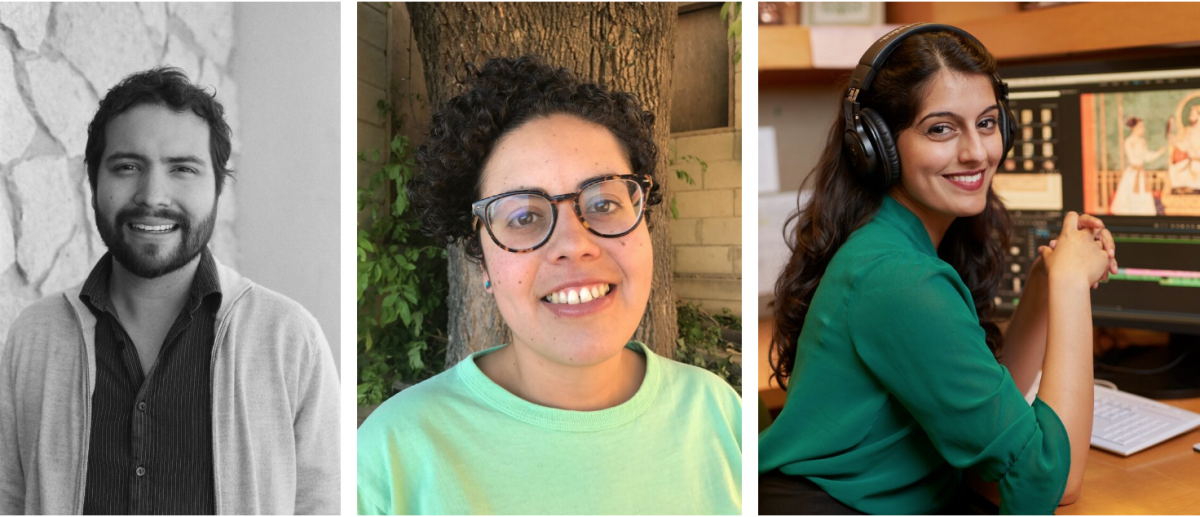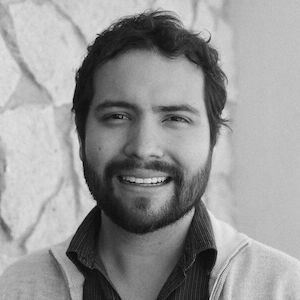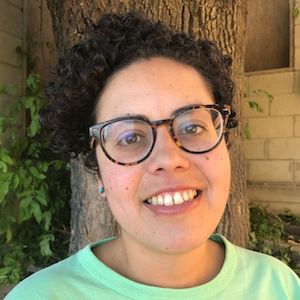
Not often does a small organization try to recruit three new staff members simultaneously, but we did it well, and were encouraged and inspired by the process of interviewing so many impressive candidates. After a national search that yielded over 180 applications, three review committees, and 45 total interviews, ACTA welcomes three impressive new staff members: Julián Antonio Carrillo, Shweta Saraswat, and Betty Marín. A committed team of six ACTA staff members and an outside consultant, supported by the Irvine Foundation, recruited applicants, vetted, and hired our new employees over the course of a few months.
One of the secondary, and unanticipated, benefits of this process was getting to know our field better, and becoming energized by the people doing this work both here in California and around the country. We are extremely grateful to the many talented candidates who took the time, thought, and care to participate in our search process. We are renewed by you, your thinking, and your work that resonates with ACTA’s own values in the world.
Some observations:
- The field of practice is broad, ranging from folklore, anthropology, and other ethnographic disciplines, to community arts, social work, cultural organizing, and social justice work.
- Its practitioners are well-educated, diverse, multi-lingual, and predominately female-identifying.
- While the majority of applicants were from California, there were a handful from around the country, including successful candidate Julían Carrillo, a native Texan.
- In addition, we were surprised, and delighted, by how many working professionals are also practicing a variety of art forms.
- Our overall impression is that cultural workers, and those with an emphasis on the folk and traditional arts, are finding creative (and sometimes new) ways to do this work—in public radio, museums, community festivals, state and local government, the public health field, social service fields, and the academy, alike.
ACTA’s Recruitment: By the Numbers
Program Manager (San Francisco)
Nearly 60% of the Program Manager applicants hold advanced degrees, with 29 applicants identifying as female, and 10 as male. More than 60% of applicants were fluent in more the one language, including Arabic, Fon, French, German, Hebrew, Italian, Japanese, Mandarin, Mixtec, Persian, Spanish, Tagalog, Thai, and Vietnamese. Many of the applicants for the Program Manager position also practiced an art form–particularly music (taiko drumming, Afro Cuban percussion, trombone, violin and piano). There were also actors, dancers, painters, visual artists, writers and culinary artists. These pursuits were in addition to serious academic and managerial credentials. Most candidates identified their cultural backgrounds. These included African/Afro Cuban, Asian (Japanese, Pilipino, South Indian, Vietnamese), European, Latin American, Middle Eastern, Native American, and multi-racial backgrounds.
Program Coordinator (Los Angeles)
The Program Coordinator applicant pool was varied and highly skilled, with with 57 applicants identifying as female, and 20 as male. It included arts administrators and practicing artists, curators and museum educators, diplomats and community organizers, urban planners and arts educators, community developers, social workers, and organizers of all stripes from events to movements. The working artists included musicians, actors, writers, photographers, dancers, ceramists, and taiko drummers, to name a few. Additionally, 44% had advanced degrees and 43% were fluent in at least one other language, many in several. While Spanish predominated, other language fluencies included Arabic, Armenian, Braille, Chinese (Mandarin), Czech, Danish, Finnish, French, Garifuna, Hebrew, Japanese, Moroccan Darija Arabic, Norwegian, Portuguese, Swedish, Tagalog, Thai, and Wixarika. Most, but not all candidates, identified their cultural backgrounds. These included African/Afro Cuban, Asian (Asian Pacific, Japanese, Korean, Pilipino, South Indian, Vietnamese), European, Latin American, Middle Eastern (Arabic, Armenian), Native American, Multi-racial, among other self-identifiers (Jewish, LGBTQ).
Digital Media Specialist (Los Angeles)
We received an inspired group of applicants for the dynamic half-time position of Digital Media Specialist. Out of 57 applicants, 39 identified as female, 17 as male, and 1 as non-binary. Applicants came primarily from the fields of multimedia journalism, documentary and studio arts, film studies, and the film and television industry. Many applicants also had considerable experience in digital content and social media production in organizational settings, including museums, print or media-based news outlets, universities, non-profits, and grassroots organizations. Several applicants have taught at the college level. 30% of applicants hold advanced degrees and many of them speak at least one additional language, including Cantonese, French, German, Greek, Haitian Creole, Hindi, Italian, Japanese, Khmer, Spanish, and Tagalog.
Meet our New Hires

Julián Antonio Carrillo, Program Manager (San Francisco Field Office)
Julián Antonio Carrillo has demonstrated a deep commitment to cultural heritage and equity in academic, professional and personal settings. Both a folklorist and anthropologist, Julián is originally from the U.S-Mexico borderlands, with an interest in intangible cultural heritage, and applied in folklore and anthropology. He holds two M.A.s from Indiana University–Bloomington (IU), in folklore and anthropology, and is currently a Ph.D. Candidate in anthropology at IU. Julián has worked with a number of cultural institutions including the Smithsonian Center for Folklife and Cultural Heritage in Washington, D.C., the Center for Traditional Music and Dance in New York City, and La Mujer Obrera in El Paso, Texas. A passionate cultural programs producer, and former university instructor in anthropology and Latino studies, he is currently writing the last chapters of his dissertation focused on the safeguarding of intangible cultural heritage in Oaxaca, Mexico. In particular, he focuses on the maroma Mixteca–a musical, acrobatic, theatrical and poetic performance presented at annual patron saint fiestas and other community settings. A native bilingual speaker, Julián has published in both Spanish and English, and is currently a Visiting Fellow at the Smithsonian Center for Folklife and Cultural Heritage where he has received support to write his dissertation.
Julián will be working as ACTA’s Program Manager based in our Northern California office at the Presidio in San Francisco. He will be managing the Living Cultures grant program, supporting ACTA’s technical assistance contracts with arts organizations, as well as number other regional and statewide projects. Julián starts work with ACTA on Sept. 4, 2018.
What are you looking forward to most about working with ACTA?
First, I am thrilled to join a team whose innovative work inspires me. Second, I’m also excited to learn from, collaborate with, and contribute to California’s diverse grass roots organizations and rich cultural communities. Lastly, I’m honored to be able to continue the legacy of the Living Cultures program while ensuring it thrives into the future. That my job will combine these three aspects alone makes it incredibly meaningful!

Betty Marín, Program Coordinator (Los Angeles Field Office)
Betty Marín is a cultural worker from Wilmington, California, in the South Bay of Los Angeles. Her work centers on using popular education to create spaces that encourage learning, dialogue, and solidarity between different communities. She organizes against displacement and gentrification with the L.A. Tenants Union, and supports language justice with Antena Los Ángeles across the city. Betty holds an MFA in contemporary art practices from Portland State University, and a B.A. in peace and conflict studies from UC Berkeley. In 2014, Betty edited a book, Art and Education (Publication Studio), where, in conversation with Pablo Helguera and Luis Camnitzer, she makes connections on the theory and practice of these two disciplines. Before her new position at ACTA, Betty worked as a Community Partners Specialist at 18th Street Arts Center in Santa Monica where she coordinated its cultural asset mapping project, Culture Mapping 90404. While there, she was involved in the Getty’s Pacific Standard Time Initiative assisting international artists, writing online articles, and developing curricula, workshops, and exhibitions.
Betty will be the L.A. coordinator for ACTA’s cultural asset-mapping work in the city’s Promise Zone Arts project. She will also be assisting with the Building Healthy Communities Initiative in Boyle Heights, and supporting the Traditional Arts Roundtable series. Betty starts work with ACTA on June 30, 2018.
What are you looking forward to most about working with ACTA?
I’m looking forward to working with folks who share my values on the importance of art and artists being deeply connected to the wellbeing of our communities. A methodology that carefully considers cultural sensitivity–in addition to defining culture as the elements that help sustain a community–speaks to my own experience as a socially engaged artist, my commitment to justice, and my work with different community organizations. I have sought, throughout my career, spaces that not only hold culture and health together, but that understand how the social, political, and cultural are interconnected and overlapping. I believe ACTA is one of those spaces. I’m am truly excited to continue to build spaces of learning and transformation in the different L.A. communities as part of our Promise Zone Arts and Building Healthy Communities programs, among others.

Shweta Saraswat, Digital Media Specialist (Los Angeles Field Office)
Shweta Saraswat is a digital media producer born and raised in Los Angeles. She is currently completing a Ph.D. in Culture and Performance at UCLA where her research looks at the relationship between diasporic identity and cultural production in the US and the UK, including traditional dance forms. Before that, she completed an MA in Journalism at USC’s Annenberg School of Journalism where she specialized in short form documentary. Her thesis was a short film centering on Khmer classical dance in Long Beach, Dance in the Diaspora. She has written and produced for The Atlantic, On Being, The Global Post, and KNBC, sharing stories of arts in communities from Belfast to Long Beach. Shweta most recently worked with the J. Paul Getty Museum, where she produced interpretive digital content for exhibitions and education initiatives. Prior to that she was a Communications Officer at UCLA’s Fielding School of Public Health, and a Senior Producer at USC’s Impact, a university newsmagazine. Shweta is also a longtime practitioner of Kathak, a classical dance from north India, having studied under Guru Rachana Upadhyay in the San Fernando Valley.
Shweta will be aiding Program Manager + Media Director Jennifer Joy Jameson and other program staff in producing digital content for ACTA, as well as providing other media and communications support. Shweta starts work with ACTA on June 30, 2018.
What are you looking forward to most about working with ACTA?
As a traditional dancer myself, I’m excited to join the ACTA community in bringing visibility to the practices, philosophies, and life histories of the traditional artists who make up the cultural fabric of California. Storytelling is one of the most powerful tools for sharing difference and recognizing common cultural ground. As a part of the effort to tell the story of traditional artists in California, I am most excited to witness and engage with the vast range of artistic legacies that are alive in this state.
